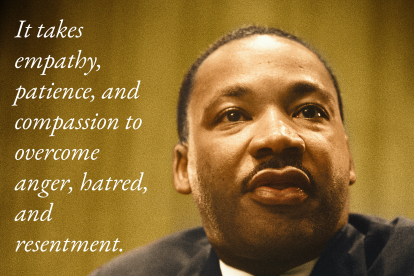The Real Cost of Untreated Mental Illness in America

The public cost of untreated mental illness includes substance use disorders, overdose, suicide, and economic costs of healthcare and lost productivity. For individuals, these costs are experienced personally as broken relationships, poor performance at school or work, suicidal thoughts, substance abuse, and poor physical health. Comprehensive, ongoing treatment is the answer, but first individuals must be properly diagnosed with any existing mental illnesses.
Untreated mental illness consequences range from public health crises like the epidemic of drug overdoses to individual impacts like poor physical health and lost jobs.
If you have experienced symptoms of mental illness, it is important to see a professional for a diagnosis so that you can get the best treatment.
Without treatment, you may face recurring symptoms, hospitalization, substance abuse, damaged relationships, and much more.
Good management of mental illness reduces the risk of negative consequences.
What Percentage of Mental Illness Goes Untreated?
The scope of the problem is big. Even when people do get treated for mental illness, there can be significant delays. It would be shocking if the same statistics applied to physical health conditions. Mental Illness Policy Org estimates that close to half of all Americans with mental illness are not getting treatment.
According to the National Institute of Mental Health, 51 percent of adults in the U.S. with bipolar disorder and 40 percent with schizophrenia were untreated during a one-year study period. For any mental illness, the statistics are even worse: Just 43 percent of people with mental illness received treatment in 2016. Men are more likely to go untreated. Around the world, approximately two-thirds of people with a mental disorder go untreated.
Facts about Untreated Mental Illness in America
The cost of untreated mental illness is high. Those costs are varied, too, including financial, public health, individual health, and social costs:
- Patients hospitalized with serious mental illness are much more likely to be readmitted in the next 30 days if they do not receive follow-up treatment.
- The average hospital cost for a patient readmitted for a mood disorder is $7,100.
- Mental illness and substance abuse often co-occur, increasing the risk of death from overdose. There were 70,237 drug overdose deaths in the U.S. in 2017.
- The National Alliance on Mental Health estimates that untreated mental illness costs the country up to $300 billion every year due to losses in productivity.
- As many as 90 percent of cases of suicide are attributed to mental illness.
Personal Consequences of Untreated Mental Illness
The cost of untreated mental illness to society and public health are significant and important. Individuals who suffer these consequences feel them much more personally. Re-hospitalization and the financial costs of emergency care are important to consider, but the impact of not getting adequate treatment reach much farther:
- Family and relationships. When mental illness goes untreated, and especially when undiagnosed, relationships can quickly unravel. The symptoms and episodes of depression, schizophrenia, anxiety disorders, and other conditions can interfere with communication and cause an individual to be unable to keep up his or her end of responsibilities in a relationship. Treatment with family psychoeducation can help re-establish and repair healthy relationships.
- Social well-being. Many mental illnesses interfere with social life beyond the family. The symptoms can make relating to other people, communicating, and engaging socially more challenging. Many people who are struggling with depression, psychosis, anxiety, and other symptoms will avoid social contact. Social isolation is common, but therapy can help patients learn how to have healthier, more positive social interactions while also developing a new social network.
- School and work. Participation and success in work and school are important for living a normal, satisfying life. And yet, mental illness can negatively impact both when not managed properly. A young person with mental health challenges that are not treated will likely miss days of school and struggle to keep up with work. Adults on the job with untreated mental illness have similar problems. This can result in losing a job and serious financial problems.
- Physical health. Adults with one or more serious mental illnesses, on average, die 25 years earlier than those without serious mental health conditions. The main causes of death are treatable or preventable physical health conditions. Unmanaged mental illness can lead to poor management of physical health, including missing doctor appointments, ignoring symptoms, and making bad lifestyle choices.
- Substance use. When mental illness is untreated, many people turn to self-medication as a way to treat or ignore symptoms. Rates of comorbidity between substance use and mental illness are high. Approximately half of people with a mental illness will have a substance use disorder at some point in their lives. The risk is much higher when mental health is not managed. Good treatment helps reduce mental illness symptoms so that a person doesn’t feel the need to turn to drugs or alcohol to feel better.
- Other mental illnesses. Untreated mental illness may lead someone to misuse substances, but it can also indirectly lead to other mental health disorders. Anyone with a mental illness is already at an increased risk of having another, as compared to someone with no mental illness. Treatment can help manage a diagnosed mental illness and reduce this risk at the same time by giving the patient good coping strategies, a better awareness of symptoms, and the confidence to ask for help when needed.
Begin Your Recovery Journey Today!
844-252-8202Getting an Accurate Diagnosis for Mental Illness
To avoid the costs of untreated mental illness and all the personal, devastating consequences of not getting treatment, accurate, timely diagnosis is essential. If you have symptoms of mental illness, are struggling and you’re not sure why, or if you’re concerned about a loved one, you must see a doctor for a diagnosis.
You can start with your trusted general doctor or family doctor, but ultimately you may need to see a mental health specialist. Mental illnesses can be complicated, with overlapping symptoms and co-occurring conditions making diagnosis tricky. An experienced professional can observe symptoms and determine the best possible diagnosis. Differential diagnosis is particularly important. This is the careful determination of a diagnosis when there are symptoms that could be attributed to more than one condition.
Treatment Following Diagnosis
It is only with an accurate and differential diagnosis that you will get the best care and treatment. Consider seeking residential care, a facility where the team of experts can work together to develop an individualized treatment plan for your symptoms and goals. With therapy, group support, medical treatment, and holistic and alternative care, you can avoid many of the high costs of untreated mental illness that so many people face.
If someone you care about is going through symptoms of a mental illness but is not seeking treatment, offer assistance. It sometimes takes a push to get someone to first recognize that something isn’t right and to then be willing to get professional help. Treatment is the key to learning to manage mental illness and the only way to live well with these chronic conditions.
Our Mental Health Facilities
Constellation Behavioral Health is proud to be a leader and innovator of mental health services. Our integrated, shared system of care ensures quality of care across all of our facilities, with a distinct focus on providing a robust differential diagnosis, cultivating personal agency, and working closely with families and healthcare providers to ensure the best chance for lasting recovery. Coordination and collaboration of staff across our different facilities contribute to consistency of quality and shared treatment philosophies.
BrightQuest Treatment Centers
Located in Nashville and San Diego, BrightQuest specializes in complex psychiatric conditions, providing compassionate care to a vastly underserved population. With our unique therapeutic community model, BrightQuest is the long-term residential solution you’ve been looking for to provide your loved one with the tools necessary to live a healthier and more independent life.
Bridges to Recovery
Our Bridges to Recovery locations in Los Angeles and San Diego are designed for men and women struggling with mental health disorders who are seeking a safe alternative to hospitalization for their care. Many clients choose residential care at Bridges to Recovery because, despite their best efforts and dedication to treatment, they still are not living a stable and satisfying life. Our clinical expertise and nurturing home-like residences provide clients a safe and supportive environment to recover and heal. The quality and comprehensiveness of our integrated, intensive treatment program allow for rapid relief from suffering and tremendous growth, all in a few short weeks.
> BrightQuest Treatment Centers: Residential Mental Health Rehab






